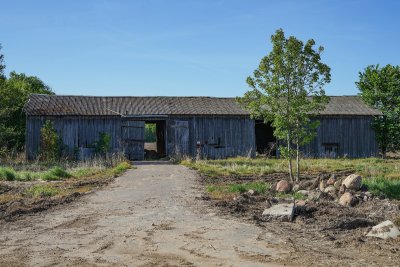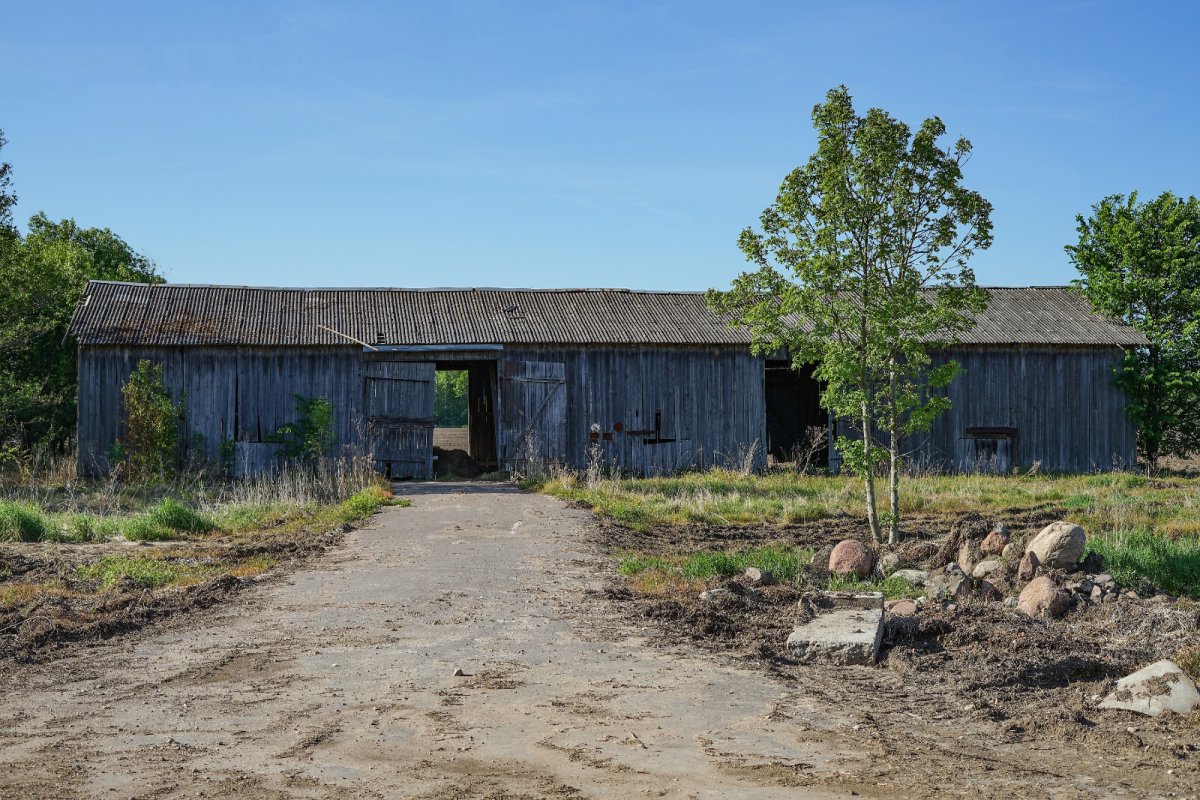 Copyright: OlegRi | shutterstock
Copyright: OlegRi | shutterstock
Sustain has compiled a response to the Government’s proposed changes to certain permitted development rights that allow agricultural diversification and development on agricultural units. There was also a call for evidence on nature-based solutions, farm efficiency projects and farm diversification.The stated intention of the draft proposals is “to support the agricultural sector by providing further flexibilities to farmers to undertake works on their agricultural units and enable farm diversification without having to submit a planning application”.
The planning regime for agriculture is already both technical and complicated and currently consists of a range of activities which are permitted development ie not needing a full planning consent.
Some of the proposals followed from the Prime Minister’s ‘farm to fork’ summit in May 2023
The Sustain response was based on recent research with farm businesses[i], our work on periurban farming[ii] and agroecology[iii] and our most recent knowledge about nutrients from farming in our rivers[iv].
The consultation identifies a raft of developments which could be allowed without scrutiny in future. Whilst the removal of the need to apply for planning permission initially seems to make life easier for farmers, in making our response we considered whether there is evidence that making a planning application is a barrier to development and what will be the unintended consequences of the proposals.
The second part of the consultation on behalf of DEFRA related to planning or other issues associated with nature-based solutions farm efficiency projects and diversification of farm incomes.
Farm diversification
One key concern raised by Sustain is that farm diversification projects remove buildings and land from agricultural use when they could have been made available for new entrants. We call for farm diversification projects to have a relationship to the use of the land.
Publicly owned farms in particular, should be protected for their social value in providing food, jobs, other public benefits as well as nature recovery on the urban fringe.
Several proposals would encourage the conversion of more farm buildings into housing.
Sustain stresses the need to ensure that the agricultural business has the buildings required for a viable business sited in the best position. We are concerned that dwellings are sold away from the business and then workers, new owners/tenants cannot afford to live locally. There should be safeguards on housing provided under permitted development should be for rural workers. Market housing should require full planning consent.
As a rule, in response to many of the suggestions to take development for housing and business out of the planning system if they were related to agricultural land, Sustain responded that full consideration of all impacts should be assessed through the planning system.
Housing conversions should be assessed through the local planning system to ensure they are in a sustainable location. The proposed permitted development is likely to incentivise the selling away of buildings that are still suitable for agriculture or related services.
Any housing created should be for permanent occupation as a home, not a holiday let/second home. Even better, all new housing units should be classified as affordable housing or restricted for rural employees.
We are concerned that food producers are looking for agricultural land with buildings on site that can be converted to support the viability of their business or in partnership with other local businesses eg processing, packing, retail. Where clusters of buildings have been sold away, it is nearly impossible to get planning consent for new buildings in a suitable location on site and needs a long term tenancy to justify the investment.
In addition, the proposal for permitted development rights for change of use of buildings in other predominantly rural uses to residential could undermine the rural economy. Food growers and producers rely on a local network of support services.
All such decisions should be taken in the context of policies of the local plan scrutinised via a planning application.
We reminded DLUHC there is a government commitment to support food production. Measures should be specific to this part of the rural economy. It is difficult for food businesses to compete for land and buildings with higher value businesses such as leisure.
We have seen no evidence that the planning system is a barrier to sustainable development. Decisions should be taken in the context of the Local Plan and local material considerations.
Call for stronger support through the planning system
Sustain called for strong national statements of support for food growing and processing in NPPF and national development management policies which would ensure greater certainty for agricultural/horticultural businesses than they currently have. Such a broad application of permitted development allowances are likely to have unintended consequences not only for food producers but also for communities and landscape. We have seen no evidence that the planning system is a barrier to sustainable development.
More generous permitted development rights are proposed for agricultural development on units of 5 hectares or more.
Sustain has not seen evidence that having to apply for planning consent has been a block to farmers responding to the challenges facing the agricultural sector and erect buildings that are more in line with modern agricultural practices.
We are concerned at the cumulative impact of buildings constructed under permitted development and then taken out of agricultural use.
Small farms report confusion and concern around the 5 hectare rules especially where an agricultural holding has been subdivided to enable new food growers to start a business and bring land into more productive use. Sustain calls for research into the relevance of this figure to modern agri-ecological models of farming.
Sustain supports the permitted development right for the temporary use of land should be amended so that markets can operate 28 days per calendar year.
Food growers and producers welcome the opportunity to supply their produce directly to consumers. They need regular dates throughout the year so that customers can rely on availability. This will normalise the purchasing of seasonal produce. Irregular markets make local food a novelty. The National Design Code sets principles of Public Space Design with provision for markets which are focal points at the heart of the community
Impacts
DLUHC asked if the changes proposed in this consultation could give rise to any impacts on people who share a protected characteristic?
Sustain thought there could be adverse impacts. Supporting access to land and buildings for new entrant food growers and producers will result in a more diverse business community. (Whether this is best achieved through changes to permitted development is not proven). Unintended consequences could exclude even those growers and producers already trying to build viable businesses.
Defra call for evidence
The Defra section of the consultation was a call for evidence on nature-based solutions, farm efficiency projects, and diversification in the context of the planning system.
Sustain used the opportunity to raise the following points.
We need a stronger and better UK agrifood sector that delivers on health, environment, and resilient food supply.
Diversification projects should be related to the agricultural purpose of the land. Emphasis should be on supporting the productive use of land (in particular growing food). Supporting diversification through non agricultural land uses is forcing farmers to subsidise the production of their crops through other income streams. This is not the solution to ensuring farmers receive a fair price for their produce and farm workers receive a fair wage/income. It results in buildings and land being taken out of agricultural use.
There needs to be greater recognition of mixed use sites where education, community engagement, social prescribing takes place. These are valuable public goods just as biodiversity and water quality.
Periurban land should be a special place where there are opportunities eg for high value food production for the local market. Currently periurban land is seen as a problem space.
Brownfield sites should be prioritised for development; under used or disused clusters of agricultural buildings should not be classified as brownfield.
Defra asked what guidance, policy, or legislative changes could help to provide a more supportive framework for planning authorities to determine planning applications.
Sustain’s suggestions are for national development management policies, a strengthening of policies in the National Planning Policy Framework for England and support for local plan making.
Clear national guidance is needed for planning applications related to agriculture. Guidance should stipulate the high standards that farm developments must meet, and set out the information that developers must supply at application stage, including biodiversity and climate impacts, and a detailed waste management plan. Agriculture applications should be required to adhere to a farm-level nitrogen budget, within a wider catchment nutrient budget to ensure ecological health.
National planning guidance should also display an understanding of new trends in agriculture such as agroecological approaches and support new entrants through land use policy.
In summary, Sustain calls for national planning policies which will achieve a sustainable, equitable and secure food and farming system.
The Sustain alliance is a leading voice in pushing for a sustainable farming future in the UK.
Sustainable Farming Campaign: Sustain encourages integration of sustainable food and farming into local, regional and national government policies.
Sustain
The Green House
244-254 Cambridge Heath Road
London E2 9DA
020 3559 6777
sustain@sustainweb.org
Sustain advocates food and agriculture policies and practices that enhance the health and welfare of people and animals, improve the working and living environment, promote equity and enrich society and culture.
© Sustain 2024
Registered charity (no. 1018643)
Data privacy & cookies








